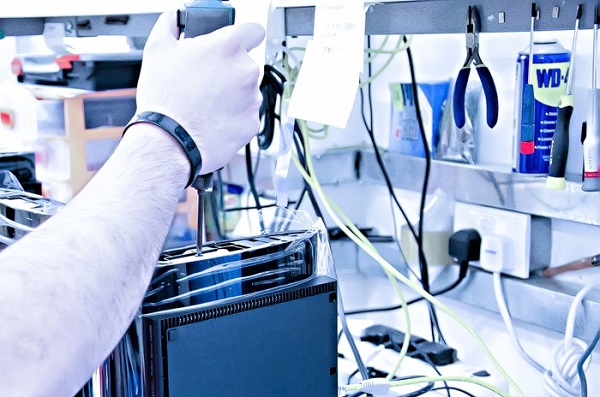
Panalpina has announced that it sees reverse logistics as a strategic area for growth; to complement its reverse logistics offering in the technology sector, Panalpina has entered into a strategic alliance with Hong Kong-based company Spread Logistics.
Working closely together, the two companies now pick up faulty consumer electronics at origin, do failure analyses and – if need be – return them to the original manufacturer in mainland China. The customer gains visibility of all return materials in the supply chain and can make data-based decisions on the reuse, repair, disposal or even redesign of its products.
Any smart device produced in China that has a manufacturing defect or requires major repair work will need to be returned to China if it is still under warranty. International regulations dictate this.
“However, returns to China are difficult,” says Mike Wilson, Global Head of Logistics at Panalpina. “The faulty products need to be sorted by fault code and correctly repackaged in their original form to meet Chinese customs demands before they can be sent back to their original manufacturer.”
Because of these exacting Chinese customs demands, Hong Kong’s Spread Logistics is one of only a few companies that can manage the return of electronic consumer goods to Mainland China. A large proportion of smart devices that are re-imported to China for repair go through their hands.
“By partnering with Spread Logistics, we have enabled the circular supply chain for our technology customers. We collect and pass on the data that is needed to decide if a product can be repaired close to the consumer market or if it needs to be shipped back to China for bigger repair work or even disposal,” Wilson explains.
The process is called Return Materials Authorization (RMA) and one of two areas where Panalpina and Spread Logistics have committed to working closely together. To facilitate this process, Panalpina is setting up four regional consolidation points. The first in Dubai is already operational; the others will follow in the coming months. The points act as return centersfor consumer electronic goods: undertaking first-level failure analysis (screening) to determine their condition and clarifying problems, if any are found. If Panalpina is able to easily repair or refurbish broken equipment, it will do so, and put products back into the supply chain as quickly as possible so that they can be reused. “Screening in the region means products can potentially be returned to available stock faster,” says Spencer Edmonds, global head of Logistics operations at Panalpina. “This improves the cash flow of our customers.”
Products that cannot immediately be reintroduced into the supply chain are forwarded to Spread Logistics, which has the ability to do second-level analysis (checking at component level) and repackaging. Correct repackaging is crucial to meet Chinese customs demands before sending products back to their original manufacturer. Local customs regulations demand that any product returned to Chinese manufacturers must come back in its original form – in other words, complete with original box, documentation and accessories. “Since many customers don’t return products this way, Chinese customs can be tricky to maneuver,” says Edmonds. “Our partner Spread Logistics is adept in dealing with reverse flows, receiving returned products and making sure they are repackaged properly to re-enter the country.”
Additionally, Spread Logistics can recover high-value parts from products that are not viable to repair as well as return faulty products to their original source of supply or a low-cost repair center in China. “The production of consumer electronics – such as mobile phones or laptops – involves more suppliers than ever,” says Jennifer Wang, CEO of Spread Logistics. “With excellent IT systems and easy-to-use platforms, we provide a scalable solution to manage the flow of components back to their various suppliers. We can connect anything to anyone.” For Spread Logistics, the connection to Panalpina’s extensive global network allows for growth in volumes and customer development.
For Panalpina, working with Spread Logistics gives the company a true end-to-end service capability – but more importantly, expansion opportunities in an increasingly circular economy. Says Wilson: “Supply chain is about the whole life span of a product. Ultimately, the real meaning behind a supply chain is a product’s life cycle – from sourcing to recycling and disposal. The future therefore lies in managing the product life cycle, not the supply chain. That’s where we are heading with our approach to logistics.”
Unsurprisingly, for Wilson the new alliance between Panalpina and Spread Logistics heralds an additional, very important benefit for technology customers: “We provide a wealth of independent data on product quality. Because of this, we can quickly identify manufacturing faults and design or user issues and therefore give manufacturers the possibility to act before a product’s performance is impacted in the early stages of its life cycle.”








